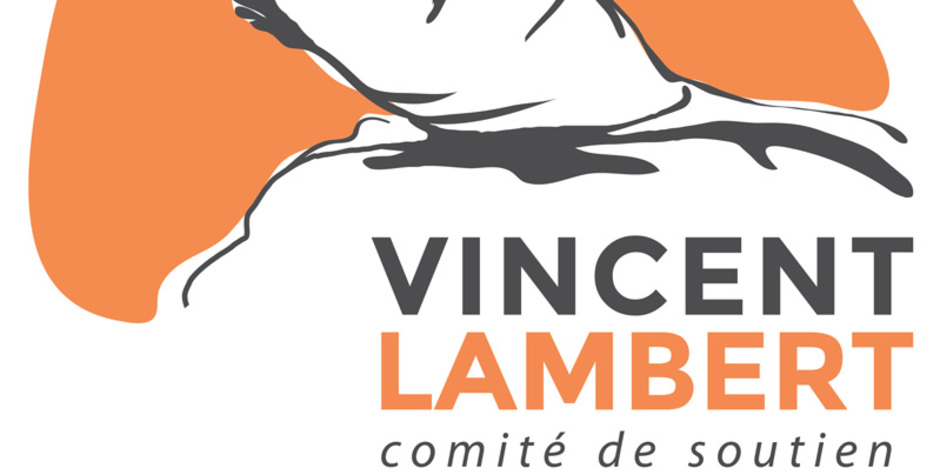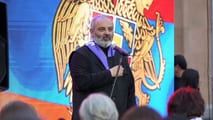

First case on euthanasia: Will the Court allow a MD to kill his patient by ending his nutrition and hydration?
Will the ECHR allow a MD euthanize?
On the 7 January 2015, the Grand Chamber of the European Court of Human Rights (ECHR) will hear the case Vincent Lambert and others v. France (application no. 46043/2014).
It is the first time the ECHR is called to decide on euthanasia, the case concerning the compatibility with the European Convention of Human Rights of a decision to discontinue the enteral nutrition and the hydration of a heavy handicapped patient, in the absence of his written or oral consent, discontinuation which will lead to his slow death through starvation and thirst. Therefore, the Grand Chamber is called to indicate whether France respected its obligations under Articles 2, 3 (right to life and to physical integrity of the person) and 8 (right to autonomy of the person) of the Convention and which are those obligations in the case of euthanasia.
This case differs from the previous cases judged by the ECHR on assisted suicide: Pretty v. United Kingdom (No. 2346/02 of 29th April 2002), Haas v. Switzerland (No. 31322/07 of 20th January 2011) and Koch v. Germany (No. 497/09 of 19th July 2012), in which the Court progressively elaborated “an individual’s right to decide by what means and at what point his or her life will end, provided he or she is capable of freely reaching a decision on this question and acting in consequence” (Haas, § 51) and on which ECLJ published a study. Nevertheless, they are similar, as their core issue is whether Article 2 of the Convention will remain in the interpretation of the ECHR “one of the most fundamental provisions in the Convention (…). Together with Article 3 of the Convention, it also enshrines one of the basic values of the democratic societies making up the Council of Europe”[1], the right to life being “an inalienable attribute of human beings [which] forms the supreme value in the hierarchy of human rights”.
The present case is also extremely important, as while it will allow the ECHR to set the first principles in the field of euthanasia, it will hugely contribute to the present debate on euthanasia in France. In France, there is a high pressure from the pro-euthanasia lobby and a huge will of the Socialist Government to legalize this practice, despite the opposition of French people. To this end, a Parliamentary Commission was appointed to advise on the reform of the 2005 law on the patients’ rights at the ending of life (“Leonetti” Act). The Commission was headed by Mr. Leonetti and Claeys (UMP and PS). On 12 December 2014, they presented to the President of France a Report and a law proposal on the new rights of patients and persons at the end of their life, proposing a “right to a profound and continuous sedation until the death of the patient”. This right will oblige the doctors to sedate their patients, even if they are not at the end of their lives and also when they decide to discontinue their treatment, discontinuation which could quickly drive to their death. On 21 January 2014, on the request of the President of France, the Parliament will open a debate on this proposal.
Turning to the application before the Grand Chamber, it concerns Vincent Lambert, a 38 years-old married person, who after a road-traffic accident in 2008 was diagnosed as tetraplegic. Although he is heavily handicapped, he is not at the end of his life, he is able to breathe alone and he does not need special medication. Nevertheless, following the consultation procedure provided for by the “Leonetti” Act on the rights of patients and the ending of life, the doctor treating Vincent Lambert decided, on 11 January 2014, to discontinue the patient’s nutrition and hydration from 13 January. After proceedings in which the implementation of the doctor’s decision had been suspended, the Conseil d’État, relying on a medical expert’s report in particular, declared lawful the decision taken on 11 January 2014 by the doctor treating Vincent Lambert to discontinue his enteral nutrition and hydration in order to end his life, considering them an unreasonably obstinacy.
As the application of the decision of the discontinuation of the enteral nutrition and hydration was imminent, fearing for Vincent’s life, his parents, sister and half-brother (contrary to his wife) introduced an application to the ECHR alleging that the discontinuance of their relative’s enteral nutrition and hydration, as well as the absence of proper care as a handicapped person, runs counter to the State’s obligations under Articles 2 (right to life), 3 (inhuman and degrading treatment) and 8 (right to private life) of the Convention. Relying on Article 2 in its procedural aspect, they complain of a lack of clarity and precision in the legislation and challenge the process which led to the decision of 11 January 2014.
They also requested the ECHR, under Rule 39 of the Rules of Court, to rule that the authorities should prorogue the execution of the Conseil d’État’s decision for the duration of the proceedings before it. The Chamber stipulated that as a result of this interim measure Vincent Lambert should not be moved for the purpose of discontinuing his nutrition or hydration and on the 4 November 2014 the case was referred to the Grand Chamber.
The applicants’ denounce several issues regarding the “Leonetti” Act and its extensive application, which are contrary to the Convention, as they do not guarantee the respect of life, physical integrity and autonomy of Vincent Lambert. Among those: the absence of a definition of « treatment » and « care » in the law and of a distinction between different kinds of artificial nutrition which led to consider enteral nutrition a treatment and not basic care, the deficiencies of the consultation procedure that lead to the decision of discontinuity of the nutrition and hydration of Vincent Lambert in the absence of proof of the will of the patient and of the consent of his entire family, the absence of special care as a handicapped person, although the law specifically prescribes such care and the existence of the life project for persons in his situation.
At present, in France, there are around 1 700 patients in the same heath state as Vincent Lambert[2], all of them receiving the necessary care. Will their life, physical integrity and autonomy continue to be protected by the ECHR through Articles 2, 3 and 8 of the Convention or should they have reasons to fear for their life and physical integrity, the ECHR decide to withdraw this protection in the name of a new “right” to euthanasia deriving from the Convention?
ECLJ hopes that the Court will reaffirm in the case of Vincent Lambert, a severely handicapped person that still “the very essence of the Convention is the respect for human dignity and human freedom. (…) the principle of sanctity of life [is] protected under the Convention”[3].
[1]McCann and others v.United Kingdom, judgment of 27 September 1995, § 147 ;
[2] http://www.alliancevita.org/2014/11/affaire-lambert-a-la-cedh-le-7115/
[3]Pretty v. United Kingdom, n° 2346/02, judgment of 29 April 2002, § 65.












